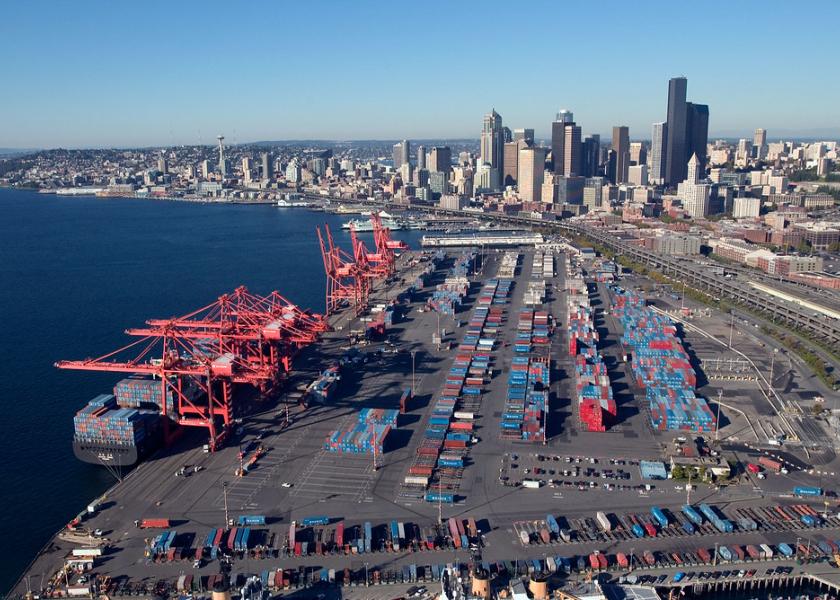Foreign Carriers Offered Loophole to Leave U.S. Ports Without Goods, Despite Active Legislation

The Federal Maritime Commission (FMC) faced backlash from Reps. Dusty Johnson (R-S.D.), John Garamendi (D-Calif.) and other congressmen in a letter penned on Friday, stressing that foreign flagged ocean carriers will continue to cause “havoc” on U.S. ports if the agency doesn’t change its requirements to prevent unfair business practices.
The Ocean Shipping Reform Act (OSRA) of 2022 was signed into law in June, preventing foreign carriers from discriminating against American exporters by unreasonably refusing cargo space for U.S. goods before departing U.S. ports.
According to the congressmen, the FMC’s definition of “unreasonable” has offered a loophole for foreign carriers to “neglect” their outgoing responsibility, as they did prior to OSRA, when three in four containers offloaded at U.S. ports returned to Asia emptyhanded.
“Foreign businesses’ and ocean carriers’ access to American ports and our consumers is a privilege, not a right,” the congressmen wrote in the letter. “Ocean carriers must provide reasonable opportunities for American exporters to get their goods to foreign markets."
The Container Problem Persists
Empty containers piling up at U.S. ports, as the congressmen said in the letter to FMC, is indeed becoming an ever-growing problem, according to Josh Brazil, vice president of supply chain insights at Project44.
“As demand wanes and carriers are no longer in a hurry to whisk empties back to Asia to get refilled, that excess container capacity is being left at U.S. ports,” he says.
Ports like New York and Los Angeles are considering imposing fees on carriers that do not pick up empty containers on time to prevent further yard congestion.
Port Status Update
According to Project44, the number of container vessels waiting outside of U.S. ports has improved in some areas since OSRA was put into action.
The Port of Savannah has seen a decrease from 30 to 11 carriers. However, Houston is still congested with 19 vessels waiting for berthing slots and 20 vessels loitering for the past six months.
Are Dwell Times to Blame?
Export container dwell times also continue to remain high across many U.S. ports, with Project44 reporting an average of eight days—the time containers wait in port before being loaded onto a vessel.
Zooming out to a global scale, the average wait time across the world is roughly four-and-a-half days, according to Brazil. But he’s not too concerned that the U.S. is lagging in the eight-day range.
“High export dwell times are not a new trend in the U.S.,” he says. "They are almost always higher than the global average, which signifies that the exports are not highly valued or time sensitive products, such as paper pulp.”
While high export container dwell times do not necessarily result in “port congestion,” Brazil says those tides can quickly change if the number of containers at a port exceed its yard capacity.
Whether a redefinition of “unreasonable” will ease U.S. ports remains to be seen. The FMC has yet to address the letter or announce a change in its foreign container policies.
More on trade:
China Cites U.S. Ag for Why It's Chosen Not to Invade Taiwan
WTO Says the U.S. Passed Inflation Reduction Act Could Lead to a "Subsidy War"
New Legislation Could Halt Gas Exports When Prices are High







